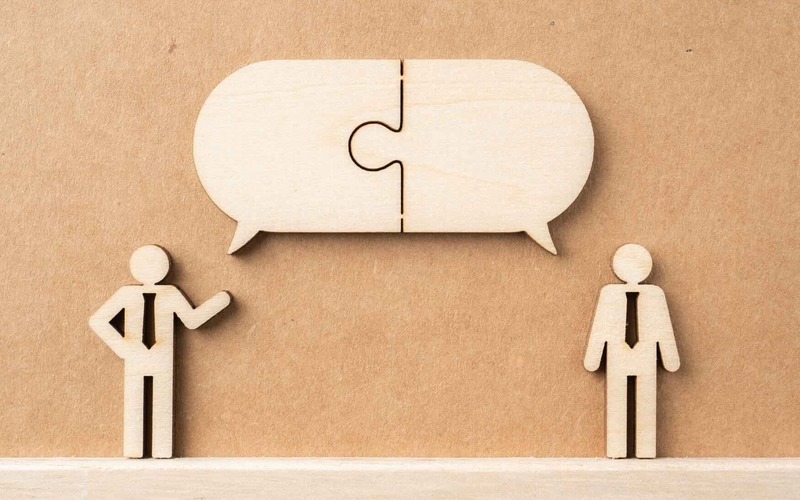How to deal with difficult people?

Difficult people can be found in every organization. People who don't do their jobs as promised, people who don't show up to meetings, people who stick to their positions and refuse to work together, people who resist tasks they are responsible for - and so much more. How can you best deal with these difficult people?
For a long time, I worried about situations where others were obstructive or difficult. I would think, "Why are they being so difficult now?", "This is just disrespectful and irresponsible!" or even "I just don't ever want to work with this person again!".
After a while, I came to the conclusion that you can't avoid difficult people. You can change positions, join a different team or even find another job, but no matter where you choose to go you can't avoid difficult people.
The best way to deal with them is to change your mindset. After all, we're pretty quick to think, "What a difficult person that is!" And then we get into a conflict model. That makes working with that person even more difficult. Here are a few tips to achieve better results, even with difficult co-workers.
1 Listen sincerely
Listening is the first important step in dealing with "unreasonable" people. There is a good chance that the other person is being difficult because he/she does not feel heard. You cannot make progress until the other feels acknowledged. Listen without judging, don't get defensive right away, and show that you are genuinely interested in the other person's story or point of view. This opens the door to the next step.
2. Use empathy
None of us really understands what other people are feeling, what they have been through or endured. Setbacks, insecurity or frustration can be triggers for others to display difficult behavior. Chances are, it's not even about you or your work. When you show empathy, the other will often begin to respond in a more positive way. Another step closer to a closer working relationship.
3. Find something in common
Have you ever noticed that when you talk to someone for the first time, finding something in common creates a strong initial connection? We all like to feel part of a group, like we belong. This is an important factor in dealing with difficult people. It creates a bond if you have a common interest or hobby, for example. Or if you can share a certain point of view. , Find an agreement that can help make communication and cooperation smoother.
4. Don't make it personal
Branding a person as difficult or troublesome is not going to help you. You think that colleague is a difficult person, but it's actually the behavior that you don't like. Separating the person from the behavior allows you to set your own boundaries and determine what aspect of someone's behavior bothers you.
It also facilitates healthy dialogue by helping you adjust your language. So talk about the behavior, rather than the person, when you give feedback. For example, "I understand that you find this a tight deadline. Taking out your frustration on me or your colleagues won't solve this. Let's see what we can do together. Do you think that's a good idea?"
Feedback should be given in a calm and non-critical manner. Be level-headed and firm, without strong emotional reactions such as anger, impatience, judgment or frustration....
5. Change your mindset
When you find it difficult to understand why the other person is behaving in a way you don't like, take a moment to step back. Instead of judging, look for answers.
Expand your perspective by asking the following questions:
- Why is this person reacting this way?
- What trigger is behind this behavior?
- What is the other person feeling in this situation?
- Are there things I don't know or see?
- What can I learn from this for myself and the other?
This self-reflection affects not only our attitude and behavior, but also how we see other people. Turning the difficult moment into a learning experience can help you reinforce positive behavior. Behavior provokes behavior. By creating an open mindset yourself, chances are the other person will come to a greater understanding as well.
More information: Conflict Handling







